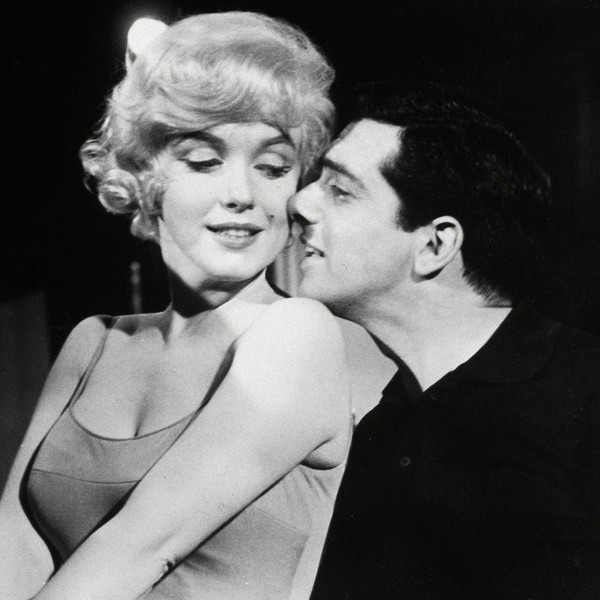Hacking Your Hormonal Rhythm Could Be the Key to Living Your Best Life
An expert explains everything.

From fluctuations in mood, intense food cravings, and painful cramps, your body undergoes so many hormonal changes over your 28- to 30-day menstrual cycle, but we rarely take that into consideration when it comes to building our wellness and lifestyle routines. For example, you may really love high-intensity workouts, but there may be times where it's more beneficial for you to take it easy with a yoga class, instead. Or, maybe your vitamin B12 levels may drop during a part of your cycle, so you'd want to focus on nourishing your body with vitamin-rich foods during that time.
The idea is that once you know exactly how your hormones ebb and flow during your cycle, you can make wellness choices to accommodate these changes in order to work with your body instead of against it. This is also known as following your body's infradian rhythm. Oftentimes, women try to follow the same-thing-everyday plans that work for men; however, not listening to your body might end up being a detriment.
Ahead, Jolene Brighten, ND, a medical adviser for Hummingway, a hormonal and reproductive health brand co-founded by Ashley Greene Khoury and Olivia Khoury, helps explain the different hormonal patterns that happen in our body and how you can tailor your lifestyle routine to match your cycle in order to feel your best. Also, FYI: This isn't a substitute for professional medical advice. Consult your doctor before starting a new diet or exercise program, so you can come up with a plan together that fits your unique needs.
Menstruation
What's going on in your body:
This is the part of your cycle that you're definitely already aware of: your period. "At the beginning stage of your period, your hormones are at their lowest point," says Dr. Brighten. Your estrogen and progesterone levels drop, so you might feel sluggish, low energy, and tired. You're probably also dealing with period symptoms, like cramps and bloating.
Lifestyle choices you should consider making:
During this phase, says Dr. Brighten, you're losing a lot of blood, so you want to make sure you're eating foods that help rebuild healthy red blood cells. Most people think that means they should load up on iron-rich foods, but that's just one piece of the picture; there are other important nutrients—like vitamin C, B vitamins, folate, and vitamin B12—that need to be a staple in your diet, too. "Leafy greens are a great way to get your folate," says Dr. Brighten. You can also incorporate grains fortified with added folic acid into your meals. With her patients, Dr. Brighten recommends taking a supplement, like a multivitamin or a prenatal vitamin, as a way to get those needed nutrients.
Because you may notice a dip in your energy levels around this time, focusing on activities like yoga, Pilates, or walking is great, exercise-wise, says Dr. Brighten. "Just dialing things back a bit to match your energetic needs is really wise."
"I do want to say that I never want people to misconstrue things and believe that the period makes you weak," adds Dr. Brighten. "Sometimes, people will say that because they get a period, female athletes are weaker and less competitive; none of that has been shown to be true. There are some female athletes who've said that they perform their best on their period." The best rule of thumb when it comes to exercise during your cycle is to gauge where you're at and how you feel. And if you're an athlete who's training and you're considering when it's best to slot in recovery time, Dr. Brighten says that lining up your rest days with your period isn't a bad idea.
Later Follicular Phase
What's going on in your body:
So, the follicular phase is technically everything that happens before you ovulate (and that includes your period). Once your period ends, your body enters the second part of the follicular phase. "In this latter half of the follicular phase, your estrogen and testosterone levels are rising, so you're going to feel more energetic," says Dr. Brighten. That energy boost might trigger an uptick in your overall mood, too.
Lifestyle choices you should consider making:
During this stage of your cycle, you can get away with getting less than eight hours of sleep. "I never want anyone skimping on sleep," says Dr. Brighten, "however, let's say you're in school and it's finals season, and you need to stay up late to study. This is where you can get away with that. Your body is a little more forgiving." Another bonus: The increase in energy levels also means that you'll feel more motivated in general, so go ahead and book that bootcamp workout class.
You'll also want to consider incorporating foods, like fresh ground flaxseeds and nuts, into your diet, says Dr. Brighten. "They're going to help support your rising estrogen levels as you approach ovulation."
Ovulation
What's going on in your body:
When you're ovulating, your estrogen levels spike, which tells your brain that the egg is ready to be released. "Once the egg comes out, you've got a 24-hour window where you're fertile," says Dr. Brighten. During ovulation, you'll notice a surge in your energy, your mood, and your sex drive.
Lifestyle choices you should consider making:
You'll also begin to notice that you want to connect more with people, and as you enter the luteal phase, says Dr. Brighten, that's when you really want to be around your tribe more often than not. So, go ahead and be social: plan meals with your friends, join a book club, or go on a date.
"This is where it becomes more important to make sure you're getting your cruciferous vegetables," says Dr. Brighten. Translation: stock up on broccoli, cauliflower, brussels sprouts, and kale. According to Dr. Brighten, they'll help to support the healthy metabolism of your estrogen as you move into the next phase of your cycle. "This helps to ensure that when you enter into the latter half of your luteal phase, that you're less at the mercy of PMS," says Dr. Brighten.
"When you have that balance of estrogen and progesterone, that allows the latter hormone to really shine and do its thing," she adds, "which is to help you feel in love with your life and your community and your partner, rather than literally feeling like you have to run away from them or having the sound of their breathing set you off into a spiral."
Once you've moved out of your period and you're around the ovulation stage of your cycle, Dr. Brighten says that it's great to incorporate high-intensity interval training into your routine. "You're going to be able to lift heavier weights, if that's something you're into, and you're going to have a greater capacity for cardio," she says. "But if you're someone who wants to do cardio kickboxing one day and then a yoga class the next, this is the phase where you can do that and still feel great." Listening to what your body needs and what your energy levels are is key.
P.S. If you're on hormonal birth control, none of this is happening in your body. "With the caveat behind a hormonal IUD where you may still be ovulating; if you're on the pill, you're not cycling," says Dr. Brighten. That is a good thing, since the goal of the pill is to prevent pregnancy. "The medication tells your brain not to secrete the hormones that orchestrate ovulation, so by shutting down that communication pipeline, your ovaries never get the green light to produce eggs," Dr. Brighten adds. "It often gets referred to as a temporary menopause because your ovaries are basically paused," she continues. "And when you're on these hormones, you're not having a real period. You're having a withdrawal bleed that triggers the lining of your uterus to shed, but it's not medically necessary."
Luteal Phase
What's going on in your body:
The luteal phase typically lasts around two weeks, starting right when the ovary releases an egg and finishing the day before your next period. During this time, your progesterone peaks and then, right before your period, both your progesterone and estrogen dip. Because of these hormonal ups and downs, you'll notice that your overall body temperature is a bit higher, you might be dealing with some bloating, says Dr. Brighten. Your serotonin levels also drop during this phase, your caloric needs increase by around five to 10 percent, and your body's going to need more rest to recoup.
Lifestyle choices you should consider making:
"This is the phase where your body's like, 'Hey, we might be pregnant! So, let's get ready for that,' says Dr. Brighten. "Your insulin sensitivity decreases to make sure there's more glucose and blood sugars floating around, so that if there is a baby, you're preparing to create the best environment for it to thrive." This paired with the dip in your serotonin levels means that you're going to crave more calories. "You might want to eat an entire loaf of bread or go in on a box of doughnuts," says Dr. Brighten. "And you're not bad for making those decisions, but you could make healthier ones. Like, maybe choose a sweet potato instead because it's a carb that's rich in vitamin A and fiber while also tasting sweet." Dr. Brighten goes on to add that it's about understanding your body and giving it what it needs in the most nutrient-dense way.
Other foods to consider: ones that are rich in vitamin C, like bell peppers, strawberries, and citrus. "Even adding lemon to your water is a really simple way to start bringing in more vitamin C," says Dr. Brighten. Vitamin B6 is another way to maintain balanced progesterone levels. "Bringing in nuts and seeds as well as animal proteins, if you eat them, can be a helpful way to sustain your blood sugar throughout this time," adds Dr. Brighten. "Plus, magnesium is an important mineral you need, and you can find that in a whole lot of produce, so you're never going to lose by eating more vegetables."
Dr. Brighten goes on to add, "Because we live in a capitalist society driven by men, everything comes from a framework of how men operate. Men cycle over 24 hours; they don't cycle over 28 to 30 days. So, physically, we operate differently, and it's important to honor your body and listen to your body. You might feel like you're not being productive or internalize the idea that you're not working hard enough, but there's nothing wrong with you; you're not broken if you need to rest." When you eat, exercise, and live in ways that support your body's natural hormonal rhythms, it can help you feel your best self throughout your entire cycle.
Top photo: Courtesy of Instagram/@hummingway
Want more stories like this?
We Tried It: I Took a Blood Test to See How Fast I'm Aging
This Lifestyle Brand Wants to Put an End to the "Tampon Tax"
Lauren Wasser's Fight Toward Healthier Period Care Is Only Just the Beginning




